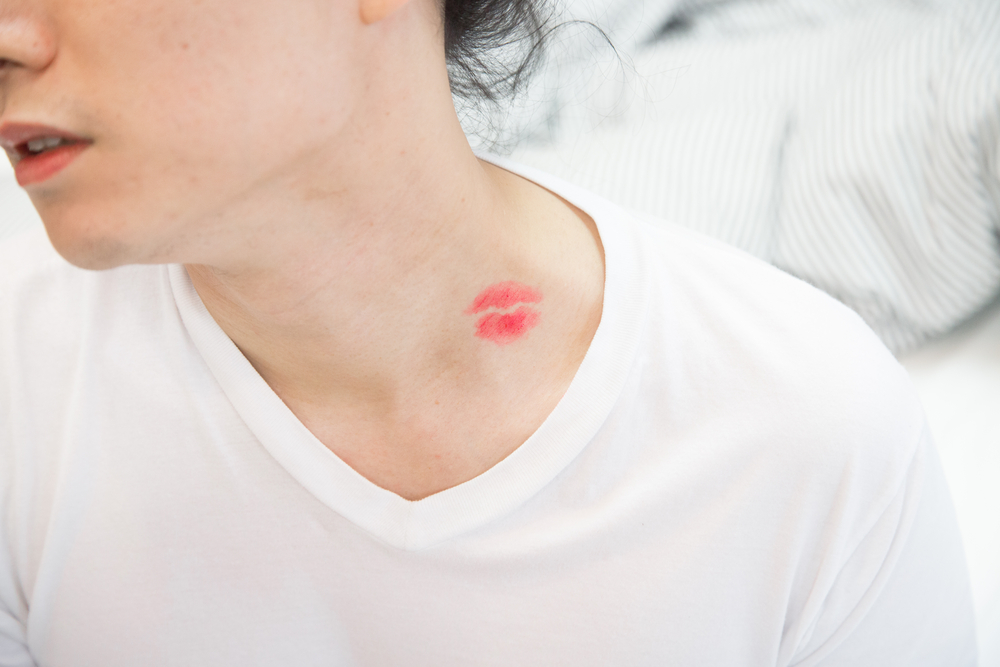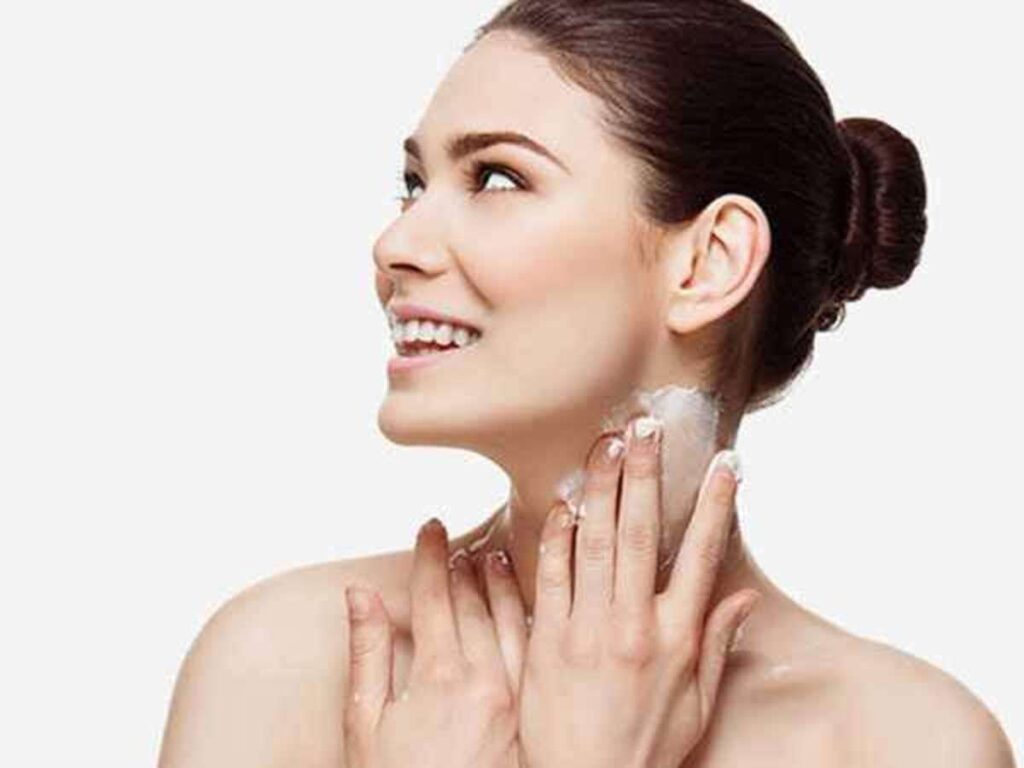**Let’s talk about something that might make you scratch your head or raise an eyebrow—literally. Can you get cancer from hickeys? It sounds like one of those urban legends that gets passed around in high school hallways, but is there any truth to it? If you’ve ever been left with a love bite and started Googling frantically, you’re not alone. But don’t panic just yet. Let’s dive into the science behind this question and uncover the truth.**
First things first, hickeys are essentially bruised skin caused by suction or biting, usually in a romantic context. They’re not exactly the most glamorous souvenir, but they’re pretty harmless, right? Well, that’s what we’re here to figure out. This article will break down the myths, facts, and everything in between when it comes to whether or not hickeys can lead to something as serious as cancer.
Before we get too deep, let me assure you—this isn’t meant to scare you. It’s all about educating yourself and understanding how your body works. So grab a snack, settle in, and let’s explore the world of hickeys and their potential health implications.
Read also:Andres Muhlach Height In Feet Everything You Need To Know About This Rising Star
What Exactly Is a Hickey?
A hickey, also known as a love bite, is essentially a bruise caused by the rupture of tiny blood vessels under the skin. When someone sucks on an area of your skin, they create a vacuum effect that damages these capillaries, leading to discoloration. It’s kind of like a mini car crash under your skin, except instead of cars, it’s blood vessels.
While hickeys may look alarming, they’re usually harmless and fade away within a week or two. However, the real question remains—can these seemingly innocent marks pose a serious health risk?
Can You Get Cancer From Hickeys? The Short Answer
Here’s the good news: no, you cannot get cancer directly from a hickey. A hickey is simply a bruise, and bruises do not cause cancer. However, there are some nuances to consider. For instance, if the skin is repeatedly damaged or exposed to certain conditions, it could theoretically increase the risk of complications down the line. Let’s break this down further.
Understanding Skin Damage and Cancer Risk
Let’s take a step back and talk about how skin damage, in general, relates to cancer. Skin cancer occurs when abnormal cells grow uncontrollably, often due to factors like UV exposure, genetic mutations, or chronic irritation. While a single hickey won’t give you cancer, repeated trauma to the same area of skin could potentially lead to issues over time.
- Repeated bruising or injury to the same spot can cause chronic inflammation.
- Chronic inflammation has been linked to an increased risk of certain cancers.
- However, this is extremely rare and would require prolonged, consistent damage to the area.
So while a hickey itself isn’t dangerous, it’s worth being mindful of how often and where you’re getting them.
Types of Skin Cancer: What You Need to Know
To fully understand whether hickeys could ever be linked to cancer, it helps to know more about the different types of skin cancer. There are three main types:
Read also:Mmsdose Com Your Ultimate Guide To Trending Online Content
- Melanoma: The most serious form of skin cancer, often caused by UV radiation.
- Basal Cell Carcinoma: The most common type, typically caused by sun exposure.
- Squamous Cell Carcinoma: Also linked to UV exposure, but can occur in areas not exposed to sunlight.
None of these types are directly caused by hickeys, but understanding the mechanisms behind skin cancer can help you make informed decisions about your health.
How Do Hickeys Differ From Other Skin Conditions?
Hickeys are unique because they’re temporary and don’t involve any deep tissue damage. Unlike cuts, burns, or even sunburns, hickeys don’t penetrate the skin’s layers or expose it to harmful external factors. This makes them far less likely to contribute to long-term health issues.
That said, if you notice anything unusual about a hickey—like it doesn’t fade after a couple of weeks, or it starts to change shape or color—it’s worth getting it checked out by a doctor. Better safe than sorry!
Factors That Could Increase Skin Cancer Risk
Now that we’ve established hickeys themselves aren’t a direct cause of cancer, let’s look at other factors that could increase your risk:
- Excessive sun exposure without protection.
- A history of skin cancer in your family.
- Having fair skin or a large number of moles.
- Weakened immune system due to illness or medication.
While none of these factors are directly related to hickeys, they highlight the importance of taking care of your skin overall. Protecting yourself from UV rays and keeping an eye on any changes in your skin can go a long way in preventing cancer.
Myth vs. Reality: Debunking Common Misconceptions
There are plenty of myths out there about hickeys and their potential dangers. Here are a few of the most common ones:
- Myth: Hickeys can turn into skin cancer.
Reality: As we’ve discussed, there’s no direct link between hickeys and cancer. - Myth: Hickeys are a sign of STDs.
Reality: Nope! Hickeys are just bruises and have nothing to do with sexually transmitted infections. - Myth: Covering a hickey with makeup can cause cancer.
Reality: Unless you’re using toxic products, makeup won’t increase your cancer risk.
It’s always important to separate fact from fiction when it comes to your health. If you’re ever unsure, consult a trusted healthcare professional.
How to Prevent and Treat Hickeys
While hickeys aren’t dangerous, they can be embarrassing. Here are some tips for preventing and treating them:
Prevention Tips
- Avoid applying too much pressure when kissing or giving love bites.
- Communicate with your partner about boundaries and preferences.
- Consider wearing high collars or scarves if you’re prone to getting hickeys.
Treatment Options
- Apply a cold compress to reduce swelling and discoloration.
- Use over-the-counter creams or gels designed to fade bruises.
- Massage the area gently to promote blood circulation and healing.
Remember, hickeys are temporary and will fade with time. If you’re concerned about their appearance, these tips can help speed up the process.
When Should You See a Doctor?
Most hickeys are harmless and don’t require medical attention. However, there are a few situations where you should consult a doctor:
- If the hickey doesn’t fade after two weeks.
- If it becomes painful, swollen, or infected.
- If you notice any unusual changes in your skin, such as new growths or discoloration.
Your doctor can examine the area and determine whether further testing or treatment is necessary. Trust your instincts—if something feels off, it’s better to err on the side of caution.
Trust Your Instincts: The Importance of Regular Skin Checks
Regular skin checks are crucial for catching potential issues early. Whether you’re monitoring hickeys or keeping an eye on moles, staying vigilant can make all the difference. If you’re unsure how to perform a skin check, your doctor can guide you through the process.
Final Thoughts: Can You Get Cancer From Hickeys?
Let’s wrap things up. Can you get cancer from hickeys? Absolutely not. Hickeys are harmless bruises that fade with time and don’t pose any significant health risks. However, it’s always smart to take care of your skin and be aware of any changes that might occur.
If you’ve learned anything from this article, it’s that knowledge is power. Understanding how your body works and recognizing potential warning signs can help you stay healthy and informed. So go ahead and enjoy those love bites—just don’t forget to protect your skin from the real culprits, like UV rays!
And hey, don’t forget to share this article with your friends. Who knows? You might save someone from a Google spiral of panic. Now go out there and live your best life—just maybe avoid leaving too many souvenirs on your neck!
Table of Contents
- Can You Get Cancer From Hickeys? Separating Fact from Fiction
- What Exactly Is a Hickey?
- Can You Get Cancer From Hickeys? The Short Answer
- Understanding Skin Damage and Cancer Risk
- Types of Skin Cancer: What You Need to Know
- How Do Hickeys Differ From Other Skin Conditions?
- Factors That Could Increase Skin Cancer Risk
- Myth vs. Reality: Debunking Common Misconceptions
- How to Prevent and Treat Hickeys
- When Should You See a Doctor?



